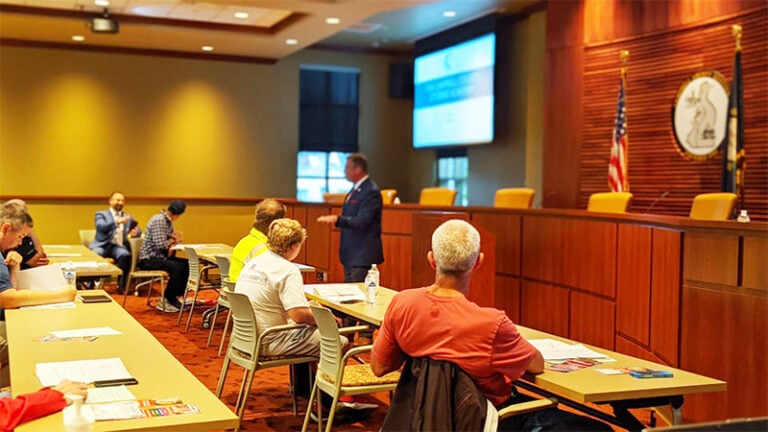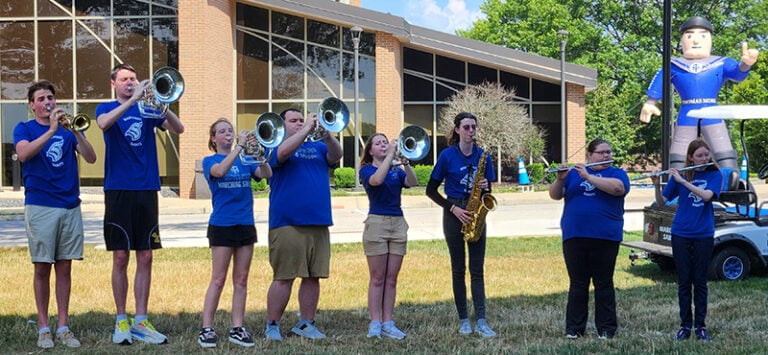Kentucky’s mildly suspenseful midterm election season went late into the night before some final results were known but didn’t deliver any huge surprises.
In his effort to unseat incumbent U.S. Sen. Rand Paul, Charles Booker’s promise to “shock the world” barely registered as an electoral tremor.
Democrat Morgan McGarvey won the open congressional seat in Louisville, keeping Kentucky’s delegation five-to-one in favor of Republicans.
Amendment 2 being voted down in a pro-life state like Kentucky would have qualified as a huge surprise if not for the fact that deep-red Kansas rejected an abortion-related ballot initiative in August. The most important outcome from Roe v. Wade being overturned was placing the issue within the democratic process where, over time, consensus about society’s most contentious issues gets forged.

Amending the constitution to allow the General Assembly to become a year-round legislature was soundly rejected. Public disapproval of Gov. Andy Beshear unilaterally imposing his political preferences during the overwrought COVID hysteria didn’t mean Kentuckians wanted a permanent expansion of government. More time in session would have likely meant more favors for the well-connected insiders. More on that below.
Beshear’s 2023 legislative agenda will double as his campaign platform: pump up an illusion of non-partisanship while proposing hundreds of millions in new government spending to motivate unions and liberal interest groups to turn out their voters next November. He’ll run up against the chairmen of the House and Senate appropriations committees, whose views on fiscal responsibility are starting to prevail in Frankfort.
Last month, The Pew Charitable Trusts reported Kentucky’s budget reserves (“Rainy Day Fund”) have eclipsed Indiana and Tennessee and now match the national average. We’re a long way from declaring the state’s fiscal challenges have been corralled but the trajectory has undeniably changed for the better under Republican legislative majorities.
Odd-year sessions are supposed to be non-budget sessions. Unfortunately, the temptation to spend money usually prevails. In 2019, the General Assembly gave the University of Louisville a $35 million taxpayer-backed forgivable loan, which UofL said was necessary to save a failing hospital system, but was instead used to replace an IT system, buy computer carts and scanners, and replace a roof (among other things).
In 2021, the legislature provided a $6 million handout to an Ohio hospitality hedge fund to renovate the Seelbach Hotel. The film industry got a fresh round of corporate welfare through a revived refundable tax credit program. Senate leadership rammed through a massive tax-increment financing program in west Louisville, delivering on a long-held vision by one of the city’s largest commercial developers for Frankfort to subsidize the gentrification of low-income minority neighborhoods.
During the closing nights of their regular sessions, the General Assembly has continued to act in a manner inconsistent with the state constitution’s “3 readings” requirement. 2018’s Beshear v. Bevin – the unanimous state Supreme Court decision spelling out that requirement – wasn’t just about having a proper bill title but giving the public ample time to learn the substance of legislation before votes are cast by their representatives.
A new dynamic is set to impact Frankfort. A sizable number of new Republican legislators mean what they say about limited government. In an 80-member House supermajority, this “liberty” faction won’t have the votes to stop every bad idea. What taxpayers can expect is that these members won’t shy away from raising objections in the all-important caucus meetings that decide which bills move forward.
Here’s an idea for the new members that would bring about far-reaching change: insist upon 24 hours to read any bill before voting. Big business and their lobbyists will hate it, but the rank-and-file should remind leadership they’ve been elected to represent their constituents, not special interests.
Andrew McNeill is a visiting policy fellow at the Bluegrass Institute for Public Policy Solutions. He can be reached at amcneill@freedomkentucky.com. Read previous columns at www.bipps.org.


















I think what the amendment 2 result actually says is that Kentucky is actually a pro-choice state. We just didn’t realize it before the legislature forced the voters to speak. Wishful thinking, but hoping we are not bombarded with more anti-abortion legislation in 2023 and can move on to more substantive issues.